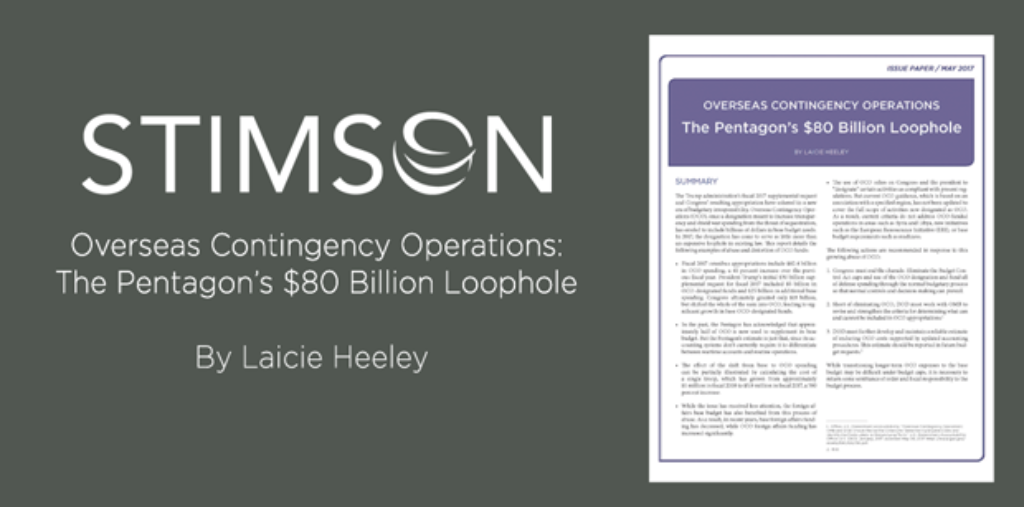The Trump administration’s fiscal 2017 supplemental request and Congress’ resulting appropriation have ushered in a new era of budgetary irresponsibility. Overseas Contingency Operations (OCO), once a designation meant to increase transparency and shield war spending from the threat of sequestration, has eroded to include billions of dollars in base budget needs. In 2017, the designation has come to serve as little more than an expensive loophole in existing law. This report details the following examples of abuse and distortion of OCO funds:
- Fiscal 2017 omnibus appropriations include $82.4 billion in OCO spending, a 41 percent increase over the previous fiscal year. President Trump’s initial $30 billion supplemental request for fiscal 2017 included $5 billion in OCO-designated funds and $25 billion in additional base spending. Congress ultimately granted only $18 billion, but shifted the whole of the sum into OCO, leading to significant growth in base OCO-designated funds.
- In the past, the Pentagon has acknowledged that approximately half of OCO is now used to supplement its base budget. But the Pentagon’s estimate is just that, since its accounting systems don’t currently require it to differentiate between wartime accounts and routine operations.
- The effect of the shift from base to OCO spending can be partially illustrated by calculating the cost of a single troop, which has grown from approximately $1 million in fiscal 2008 to $5.9 million in fiscal 2017, a 590 percent increase.
- While the issue has received less attention, the foreign affairs base budget has also benefited from this process of abuse. As a result, in recent years, base foreign affairs funding has decreased, while OCO foreign affairs funding has increased significantly.
- The use of OCO relies on Congress and the president to “designate” certain activities as compliant with present regulations. But current OCO guidance, which is based on an association with a specified region, has not been updated to cover the full scope of activities now designated as OCO. As a result, current criteria do not address OCO-funded operations in areas such as Syria and Libya, new initiatives such as the European Reassurance Initiative (ERI), or base budget requirements such as readiness.
The following actions are recommended in response to this growing abuse of OCO:
- Congress must end the charade. Eliminate the Budget Control Act caps and use of the OCO designation and fund all of defense spending through the normal budgetary process so that normal controls and decision-making can prevail.
- Short of eliminating OCO, DOD must work with OMB to revise and strengthen the criteria for determining what can and cannot be included in OCO appropriations.
- DOD must further develop and maintain a reliable estimate of enduring OCO costs supported by updated accounting procedures. This estimate should be reported in future budget requests.
While transitioning longer-term OCO expenses to the base budget may be difficult under budget caps, it is necessary to return some semblance of order and fiscal responsibility to the budget process.

